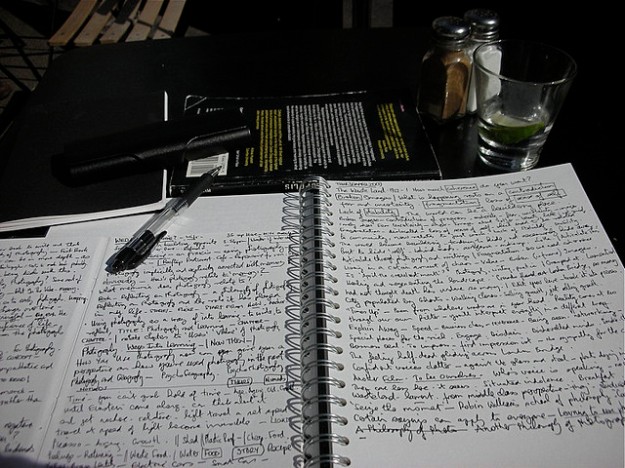One of the most prevalent dilemmas in the world of writing involves the method used to compose novels, short stories, essays, blog posts, poems, and scripts. Should you write your project out on paper or type it up on your computer? Fitzgerald and Wilde didn’t have much of a choice. Stephen King most certainly has a computer, yet he chooses to draft his pieces by hand first. Some people judge other writers by the method they use to write their first drafts. In this article, I’ll be listing the pros and cons of writing longhand versus writing shorthand. It’s up to you to decide which method works better for you as a writer.
Let’s talk about good ol’ fashioned pen and paper. The majority opinion of writers everywhere is that writing longhand allows you some freedom for pretention. Practically-speaking, there are several things to consider about writing your first draft on paper. It increases your focus, removes a majority of Internet- and computer-based distractions, cannot crash or freeze or be lost as easily, and is much more thoughtful on the whole. At the same time, writing on paper is hard work, can be time-consuming, and is difficult to search through when looking for a specific passage or scene.
Typing your draft may seem like the better solution for most writers, but there are two sides to this idea. Writing on the computer allows you to edit as you go along, backup your work, save it to access remotely when away from your computer, write more quickly and easily, search documents with ease, and automatically calculate word count. Some problems with writing longhand include the possibility for distractions, losing data to crashes and freezes, and less planning and forethought.
I’m writing this article on the computer—not because it’s better, but because typing my work is easier for me. I type much faster than I write. I’ve written this article hoping that you’ll use it to make your own educated decision about which method to use. Ignore people who try to judge your talent as a writer based on whether you write or type your work. Those people are silly. Content matters more than method.



